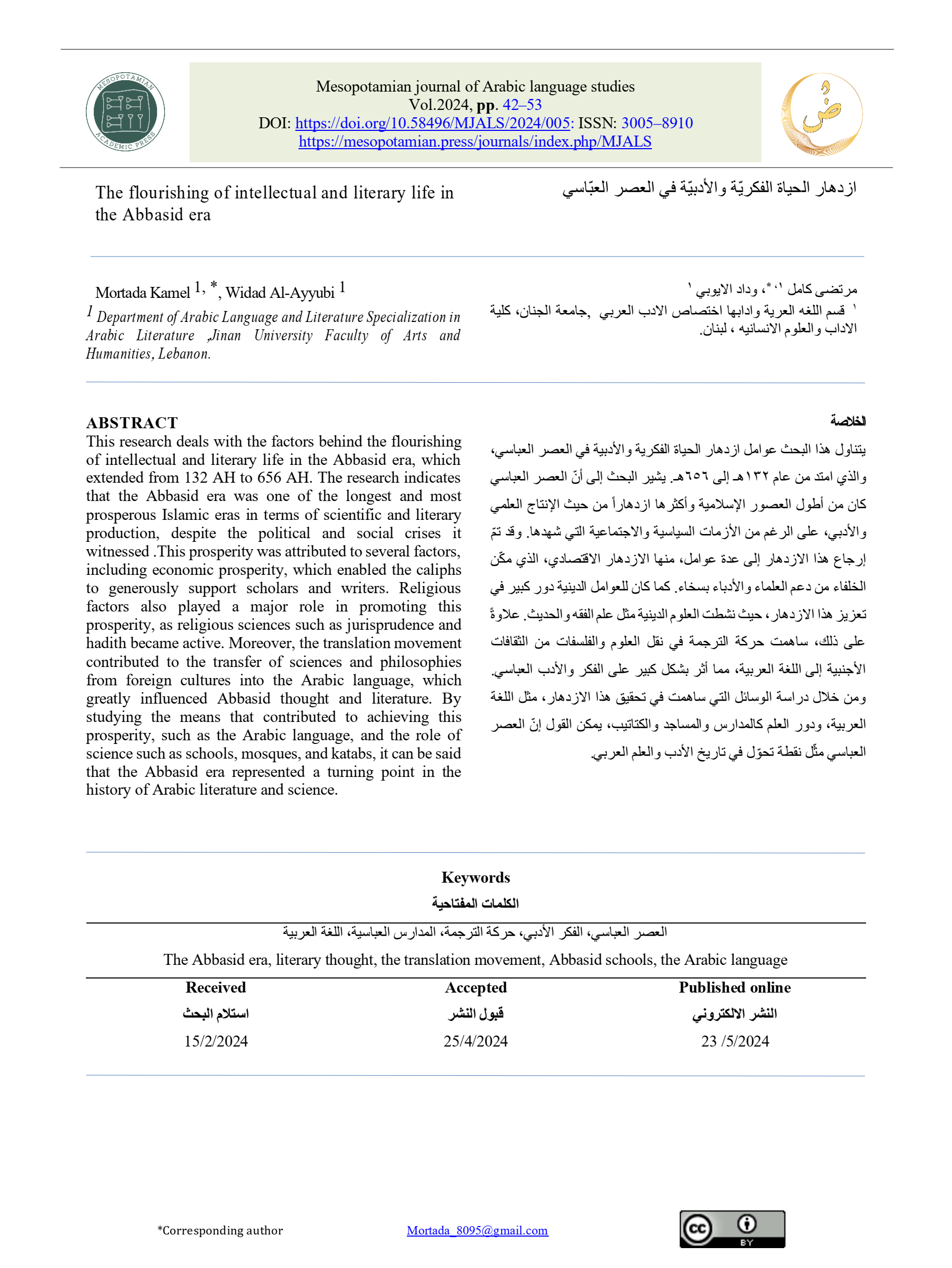The flourishing of intellectual and literary life in the Abbasid era
Main Article Content
Abstract
This research deals with the factors behind the flourishing of intellectual and literary life in the Abbasid era, which extended from 132 AH to 656 AH. The research indicates that the Abbasid era was one of the longest and most prosperous Islamic eras in terms of scientific and literary production, despite the political and social crises it witnessed. This prosperity was attributed to several factors, including economic prosperity, which enabled the caliphs to generously support scholars and writers. Religious factors also played a major role in promoting this prosperity, as religious sciences such as jurisprudence and hadith became active. Moreover, the translation movement contributed to the transfer of sciences and philosophies from foreign cultures into the Arabic language, which greatly influenced Abbasid thought and literature. By studying the means that contributed to achieving this prosperity, such as the Arabic language, and the role of science such as schools, mosques, and katabs, it can be said that the Abbasid era represented a turning point in the history of Arabic literature and science.
Article Details
Issue
Section

This work is licensed under a Creative Commons Attribution 4.0 International License.
